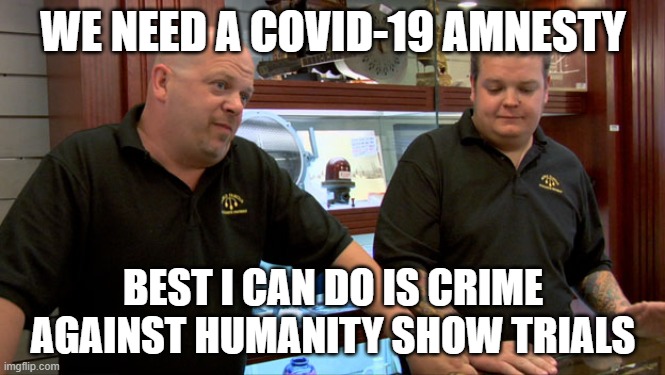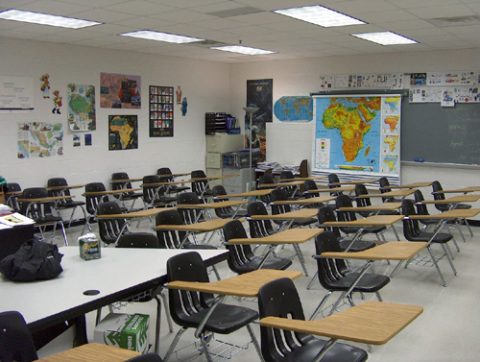Sarah Reynolds considers the implications of what Emily Oster wrote in her Atlantic article suggesting a Covid-19 amnesty:
Now “amnesty” is a very specific word. It doesn’t mean forgiveness, it literally means a pardon, i.e. the absence of punishment … for a crime committed in the past.
It is a stark and loaded word indeed when used to refer to anything Covid-related because it establishes two parties: victims and perpetrators. Group 1: Those who committed crimes and could be in the legal sense pardoned of the criminal behavior they engaged in; and Group 2: those who will consequently not get justice.
The implication of such a dichotomy (if one were to appear) is horrifying.
The author alludes to the appeal and inevitability of forgiveness; I posit in contrast that forgiveness is a spiritual concept, one that may be inextricably linked to a religious belief for some, so she’s jumping the gun here because Forgiveness would be the stage after Justice, and only for those whose religion, faith, or spiritual practice also inspires or compels it.
Use of the word amnesty is terribly concerning to me because it insinuates that grave injustice has been committed. And if some horrible truth is coming out soon, her piece in the Atlantic serves as a way to beta test our/society’s future reaction to it — acting as the proverbial canary in the coal mine.
In other words, if we’re this outraged now knowing only what we know so far, how outraged will we be then, after this (speculated by me) coming newsflash triggers national indignation from coast to coast?
The most revealing part of the Professor’s piece in the Atlantic is this statement:
The standard saying is that those who forget history are doomed to repeat it. But dwelling on the mistakes of history can lead to a repetitive doom loop as well. Let’s acknowledge that we made complicated choices in the face of deep uncertainty, and then try to work together to build back and move forward.
No, vacuums are complicated. All those attachments.
Tyranny is quite straight-forward, in contrast.
Years ago, I read a book that taught the reader that people are often confessing and how to detect it. If you look at and listen to their word choices, you can sometimes find what it is they did in the past, what they fear will happen in the future, and clues about whether or not they are capable of remorse. Many of you who have watched my youtube or read my blog before I got on substack know how I like to do a communication analysis, and delineate a) what’s literally being said, b) what the person really meant, and c) the third and most important/revealing part, what’s being left unsaid. And I rarely hear people say, “it’s complicated”, unless they are feeling profound regret, fear of the consequences of those “complicated choices”, and plenty of denial of the emotional origin of that particular word choice. They don’t even know why they were compelled unconsciously to use that word … but we do. The stark truth would likely be anything but complicated and possibly horrifying. (For example, what if Oster got on twitter tomorrow and tweeted out, “I don’t think I feel regret or remorse like other people. Intellectually, I get it: the Pandemic response caused human beings unbearable pain and society irrevocable damage but it doesn’t really bother me per se and sometimes I even feel gratified by it, especially when I witness overt force (mandates) replace emotional manipulation (shame).” Now I’m sure Oster is a wonderful person with a fully intact moral compass who’s 100% able to empathetically relate to others!! But … IF … on the off chance it were a true statement so she did declare it on twitter, it might seem complicated to her, but to us it would be the simplest most logical explanation for her actions. We’d go, oh! She’s a sociopath! Oh my God, now it all makes perfect sense! Hahahahaha I get it now hahahahaha because we live in hell!!)
H/T to Chris Bray for the link.







